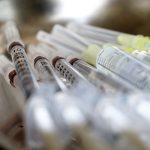May the 21st, 2024 – The government has given the green light to the Croatian Immunology Institute to begin constructing the snake antivenom plant.
As Poslovni Dnevnik writes, the very first session of the new, third mandate with Prime Minister Andrej Plenković at the helm was held yesterday. During that session, the government on gave its approval to the Croatian Immunology Institute to assume its obligations at the expense of the state budget over the next year for the construction of a facility for the production of snake antivenom.
The government gave its approval to the Croatian Immunology Institute for the conclusion of a public procurement contract for the design and construction of the snake antivenom plant at the location in Rugvica. The amount of 4.8 million euros has been set aside for the task at hand.
This will involve the design and final construction of a biopharmaceutical plant for the production of animal immunosera intended for human and veterinary use. The primary purpose of the plant will be the production of antivenom for venomous snakes native to Europe.
“It gives me great pleasure to propose the adoption of such an important decision for the healthcare system at the first session of the mandate of the new government. That’s because the revitalisation of the Croatian Immunology Institute is a strategic project to establish Croatia’s biotechnological independence. With this act, after almost 30 years, the production of highly important biopharmaceutical products will be revived”, noted Health Minister Vili Beroš.
“The government is as such continuing the implementation of strategic projects crucial for the health of Croatian citizens,” Beroš added, before explaining that this move represents the first phase of the revitalisation of the Croatian Immunology Institute. Two more very significant moves are set to follow; the construction of a plasma fractionation facility and the construction of a facility for the production of viral vaccines.
The government also made a decision to provide multi-year development and humanitarian aid to the civilian population of Syria and neighbouring countries on the occasion of the Eighth Brussels Conference – Supporting the Future of Syria and the Region, with a contribution in the total amount of 600,000 euros over the three-year period from 2025 to 2027.











